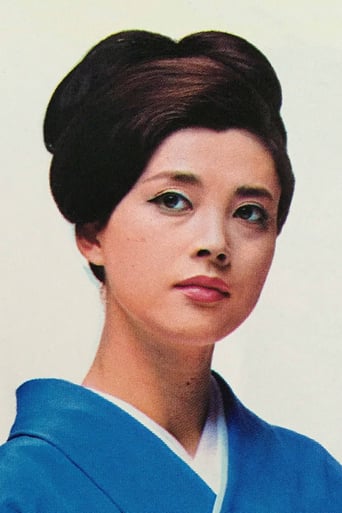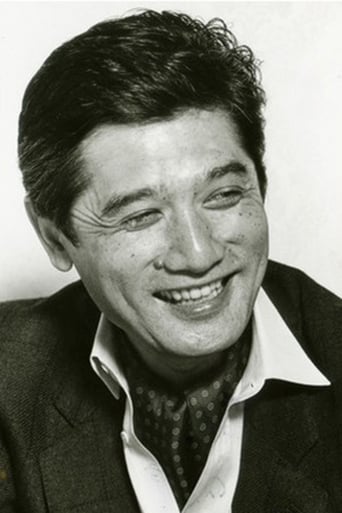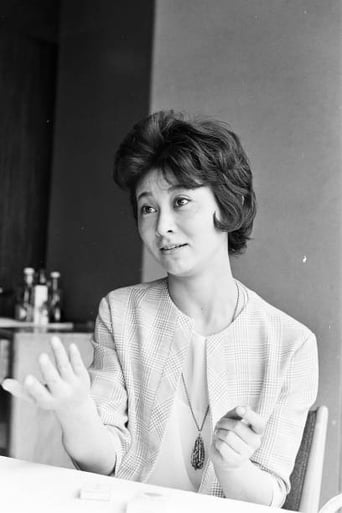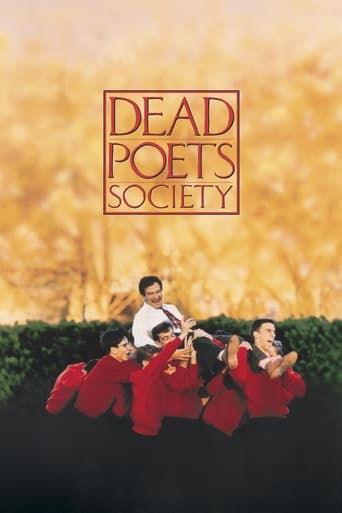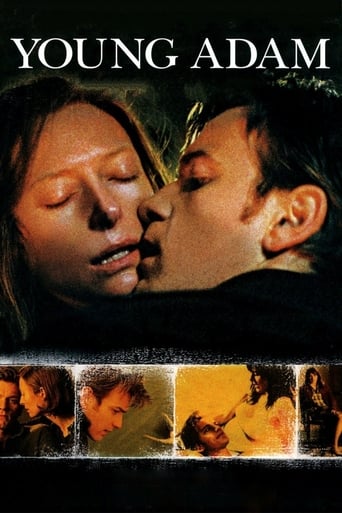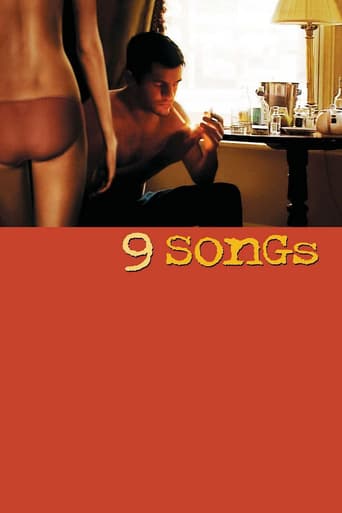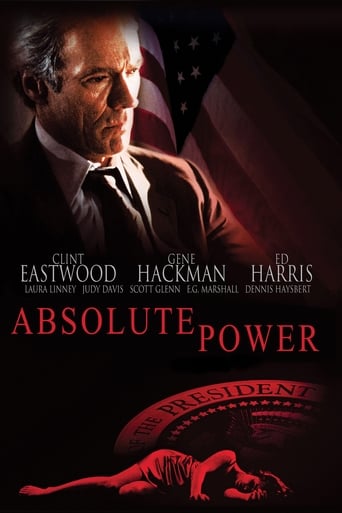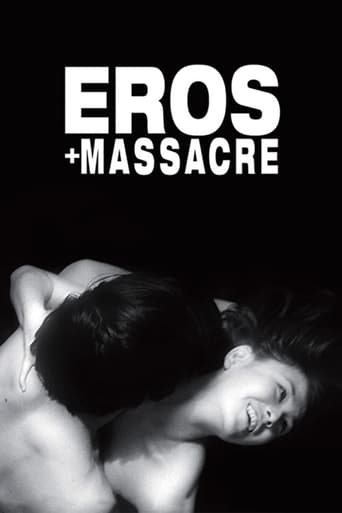
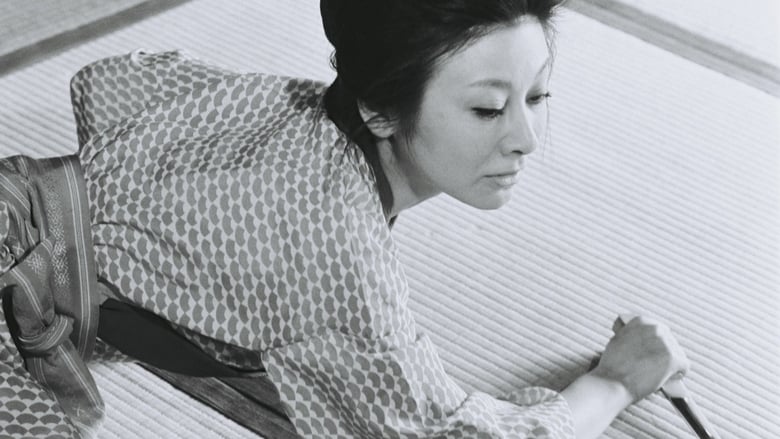
Eros + Massacre (1969)
Two interwoven stories. The first is a biography of anarchist Sakae Osugi which follows his relationship with three women in the 1920s. The second centers on two 1960s students researching Osugi's theories.
Watch Trailer
Cast


Similar titles
Reviews
Stylish but barely mediocre overall
The performances transcend the film's tropes, grounding it in characters that feel more complete than this subgenre often produces.
This is a small, humorous movie in some ways, but it has a huge heart. What a nice experience.
One of the film's great tricks is that, for a time, you think it will go down a rabbit hole of unrealistic glorification.
The Japanese New Wave is one of my favorite cinematic movements, and this film comes recommended as one of the best of its era. Very unfortunately, it didn't do much for me at all. The one thing about it that I'll say right off the bat really impressed me was the cinematography. No time and place ever produced such gorgeous black and white movies, and this is up there with the best.The film itself, though, is very slow-moving, kind of pretentious, and uninvolving. The story involves two timelines, one set in the Taisho period (starting in 1916) and the other in the present. It's about free love and the sexual revolution. In 1916, the philosopher Sakae Osugi practices and writes about free love. I'm pretty sure the Japanese word for philosopher translates literally in English to "aloof jerk," because this guy's version of free love is to screw around with different women and then say "Why can't you be chill about this?" when they confront him. In particular, Itsuko Masaoka becomes wildly jealous when he starts seeing Noe Ito on the side. She begins brandishing a knife, always threatening to get stabby with it. Late in the movie, there are like three consecutive sequences that take up a good quarter of the movie where she fulfills her promise.The 1960s stuff involves two students who are studying Osugi. They have their own problems, but want to subscribe to the free love idea, which seems to be expanding around the world. At least in the director's cut, these segments take up only about a quarter of the film.Look, I don't generally do well with long films, and perhaps this one's 3 hours and 36 minutes were just too daunting for me. The fact is, though, from the very beginning I was pretty bored with this one. 90% of the scenes just involve two or three people sitting around in a room bickering. I give Yoshida much credit for keeping it visually interesting throughout. The guy definitely has talent, but I wonder if this independently produced art film gave him too much freedom. Maybe he'd be better reigned in.Whatever the case, I'm still perfectly happy to have this new Arrow Academy box set. Outside of Criterion, they're the best home video production company today. I hope I like the other two films better, and I hope one day I get to take a look at Yoshida's earlier, studio-produced films.
Possibly one of the most ambitious works in the entire Japanese New Wave, and certainly Kiju Yoshida's most experimental film (to date). As Yoshida and lead actress Mariko Okada said when they gave their rather extensive introduction to the film, what they wanted to achieve with it was to not just portray the protagonist's history as an event of the past but rather place both his story and struggle and the audience on a same temporal plain. The results might have been a lot more successful for its time of release, but it's still a fascinating effort all along.Essentially, the film treats the work and death of anarchist Sakae Osugi as seen through the eyes of two characters in different timelines, being his long-time lover Noe Ito (Mariko Osada) and a teenage couple living out his "free love" revolution, going over his biography, who discuss and propose different scenarios that may have happened during his life, such as a notorious event when he was stabbed by his wife which is replayed and deconstructed in an almost Rashomon-like fashion.Yoshida mentioned in his introduction that he wanted to structure the film like a dream, in a place where we could flow freely from past to present and back again but in a manner that seemed to make a narrative/structural sense, like how we forget of these lapses while we dream even though they were there. I found it interesting how he made reference to these two timelines as almost separate events joined through a mere montage trick, however, when the actual way he solves this temporal obfuscation is by blending both timelines within the same mise-en-scene, like these characters and stories are merely a panel away from each other. The modern-day characters are surrounded by the locations that Osugi once inhabited, whereas the love triangle developed between Noe, Itsumi (a former lover of Osugi) and the revolutionary occur in locations that are highly artificial and clearly modern, but which also reflect Osugi's ever-growing disdain towards the world he lives in and his conceptions of "free love". It's this quality of juxtaposing temporalities is what gives it a more oneiric feeling to me than the mere disjointed structure with which this story fledges out.Another point of interest which struck me as odd considering the way Yoshida introduced his film is that, whereas he appeared to act very reverently towards the anarchist and how he seemingly was interested in conserving his ideology and not reducing the man to yet another historical figure of whom to make another biopic from, there seemed to be a pretty critical, even satirical tone held throughout to his ideology. There are some sequences within where he freely speaks of his notions of love and government, but these come as firstly apparently shallow, and secondly as little more than a lot of charlatanry. He speaks and writes a lot about these ideals but later says he's unable to defend them publicly because he's constantly surveilled, while on other sequences he seems to completely alter or even outright reject his ideals just to make an argument to defend his love (or lack thereof) to a woman or another. On the other hand, the students doing the investigation are also living in a time where much of Osugi's conceptions of love are coming to fruition, but they do so from the hands of people who seem to do that as a means to clash against the past and little more, and whose musings sound a lot like the classic college lefty monologues which just repeat vapid speeches and ideals against the "system" while drinking a can of Coca-Cola and wearing Levi's jeans and Nike trainers. In a sense, I feel the film is a deliberate case study on the vanity and frivolity in revolution, all the while not taking away merits from the essence of these movements' essential ideals.There is, I believe, one problem that defines just why this film was not the masterpiece that so many of Imamura's films were, and that's a problem with the aesthetic. The visuals in this film, the very complex narrative structure, they're all fascinating elements on their own accord, and it's likely that the film would have never been this wonderful without them, but unlike the work of the aforementioned filmmaker, all of this aesthetic innovation appears as a forced, individual element in the film. You never feel like it is something that blossoms naturally from the development of the themes and ideas, or from the position of the characters themselves. Often you're drawn into just how amazing the form is, to the point that you occasionally forget what is going on. It's like both what is being told and how it's being told exist in two very different through equally mesmerizing plains. Also, the way in which the present is depicted in the film is something that refers a lot back tot he time it was made, and nowadays one can't help but feel like the film is a product of its time as opposed to the timeless products of Imamura, Teshigahara, Shinoda, Kobayashi and the likes.Either way, it's an excellent film all around, certainly the best, the most complex and enlightening work I've seen of Yoshida, a definitive milestone for anyone interested in the 60's Japanese scene.
In the 20's, the anarchist revolutionary Sakae Osugi (Toshiyuki Hosokawa) is financially supported by his wife, the journalist Itsuko Masaoka (Yûko Kusunoki) and spends his time doing nothing but philosophizing about political systems and free love and shagging his lovers Yasuko (Masako Yagi) and the earlier feminist Noe Ito (Mariko Okada). He conveniently defends three principles for a relationship between a man and a woman: they should be financially independent (despite he is not); they should live in different places; and they should be free to have intercourse with other partners.In the present days (1969), the slut twenty year-old student Eiko Sokuta has an active sexual life having sex with different men. She has a freak friend named Wada (Daijiro Harada) that is obsessed for fire and they usually play weird games using a camera while they read about Osugi and Ito. "Erosu Purasu Gyakusatsu" a.k.a. "Eros Plus Massacre" has just been released in Brazil and I immediately bought this DVD for my collection. Unfortunately I can not understand the hype surrounding this film, and I was absolutely disappointed after watching it. The cinematography and framing are wonderful; the angles of the camera are unconventional; the acting is great; however the messy and prolix screenplay ruin the good aspects of this feature. The cult director Yoshishige Yoshida is unable to use an adequate narrative for entwining two parallel stories, one of them based on a true story of a man and three women ahead of the time living a free love among them in times of repression, and an empty couple in the late 60's when the movement of free love is worldwide. Yoshida does not develop the background of the Japanese society in the 20's and limits to the repetitive situations of jealousy and despair of the women in love. After 210 minutes running time (the DVD has intermission), the boring and never-ending story is not totally clear for the viewer. This feature should have been edited and reduced of at least 120 minutes since the situations are very repetitive. Last but not the least, the actress that performs Eiko is very sexy and beautiful, but her name is not listed in IMDb. My vote is four.Title (Brazil): "Eros + Massacre"
The opening sequence is framed an cut in such a modern way that you would think that you are in a movie of the present. It totally graps your attention and doesn't let go till the end. If you have any chance to see this movie in the original 202min. cut - use it !!


